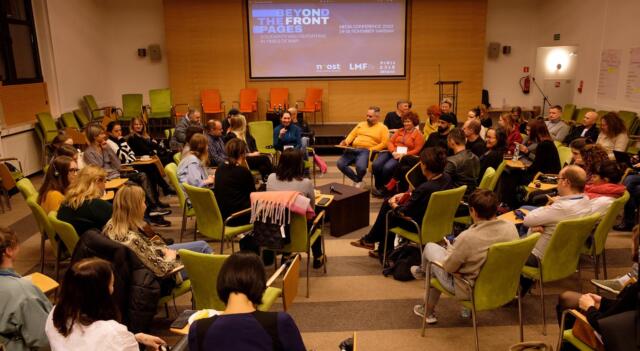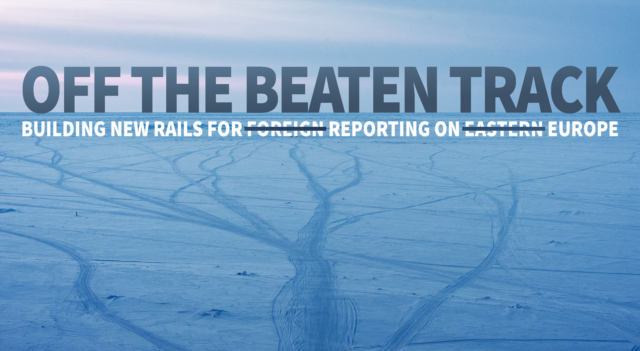Russia's full-scale invasion of Ukraine has posed new and unknown challenges for our international team and projects. In order to meet these challenges we developed the following guidelines.
A: Introduction
n-ost projects aim to work with journalists from different countries (with a particular focus on Eastern Europe) who are looking for opportunities, networking, support and expertise on an international level. Part of our mission is to work with journalists who face the challenges of working under authoritarian regimes and struggle with censorship.
B: How are we working with Ukraine?
Since Russia began its full-scale war in Ukraine, n-ost has expanded its activities to support Ukrainian journalists and will continue to do so. Our aim is to help Ukrainian independent media to survive and continue their work during this difficult time. To this end, we are working closely with our partners in the region.
C: How do we work with Russia?
We continue to work with journalists in the Russian media if they
share our values and condemn Russia's aggression against Ukraine. We judge all
media by the same criteria, regardless of their own positioning (e.g. as
'opposition' or 'independent').
Reasons for not working with media/journalists are
- Involvement with Russian state-sponsored or state-affiliated media
- Current or past involvement in pro-Russian propaganda activities (e.g. participation in demonstrations, freelance work, part-time work and fellowships in cooperation with propaganda media).
- Use of colonial and insensitive language when describing the Russian war against Ukraine and/or unwillingness to reflect on it (e.g. presenting the war as a 'Ukrainian crisis', talking about the 'brotherhood' of nations, 'protection' of the Russian language, etc.).
- Questioning of Ukraine's territorial integrity, sovereignty and self-determination.
Russia's invasion of Ukraine justifies particularly thorough research into media partners connected with the Russian media sphere. However, we do not make decisions based on passport/citizenship or ethnicity alone, but on the above criteria.
D: How do we cooperate with Russia, Belarus and Ukraine?
Russia is an aggressor and an authoritarian regime. Therefore, as long as Russia's war against Ukraine continues, we are highly sceptical about the possibility or use of any dialogue formats under such slogans as 'peace building' or 'international understanding' between Ukrainians and Russians. The if and when of such ideas can and must be decided only by Ukrainians themselves.
We do not develop or support projects with the overt aim of bringing Ukrainian, Belarusian and Russian journalists together, because we understand that the challenges they face are very different.
At the same time, we believe that a cross-border approach is beneficial in tackling certain issues (such as climate change) and do not rule out the possibility of inviting participants from these countries, among others, to the same event. All participants should be aware of each other's involvement in the project (Ukrainians first).
E: How do we work internally and present ourselves as a team?
The working and decision-making process within our team is first and foremost based on mutual trust: all n-ost employees share the values and goals of the organisation. There is no doubt that they all condemn Russia's war against Ukraine. Irrespective of their ethnicity, place of origin or nationality, all our team members are treated with the same respect. n-ost can vouch for each and every one of them and therefore expects its partners to treat our team members with the same respect.
Our Ukrainian partners are informed about the international character of our team in order to discuss with them the most comfortable/acceptable mode of cooperation for both sides.
Each project or circle must develop its design within its working group, but in projects that involve all team members (e.g. media conference), the decision-making process must include everyone. The same applies to cross-cutting decisions within n-ost, if they could directly affect all team members, the way of working within the team, etc.













